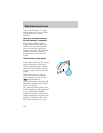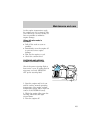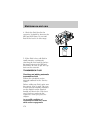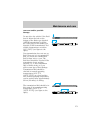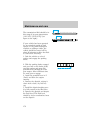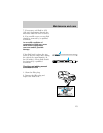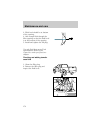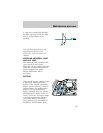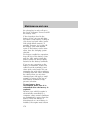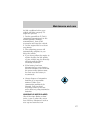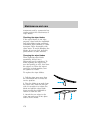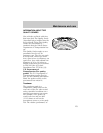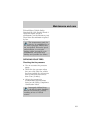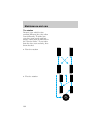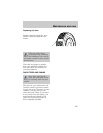
the electrolyte in each cell up to
the “level” indicator. Do not overfill
the battery cells.
If the electrolyte level in the
battery is low, you can add plain
tap water to the battery, as long as
you do not use hard water (water
with a high alkali content). If
possible, however, try to only fill
the battery cells with distilled
water. If the battery needs water
often, have the charging system
checked.
For longer, trouble-free operation,
keep the top of the battery clean
and dry. Also, make certain the
battery cables are always tightly
fastened to the battery terminals.
If you see any corrosion on the
battery or terminals, remove the
cables from the terminal(s) and
clean with a wire brush. You can
neutralize the acid with a solution
of baking soda and water. Reinstall
the cables when you are done
cleaning them, and apply a small
quantity of grease to the top of
each battery terminal to help
prevent corrosion.
If your battery has a
cover/shield, make sure it is
reinstalled after the battery is
replaced.
Because your vehicle’s engine is
electronically controlled by a
computer, some control conditions
are maintained by power from the
battery. When the battery is
disconnected or a new battery is
installed, the engine must relearn
Maintenance and care
176



